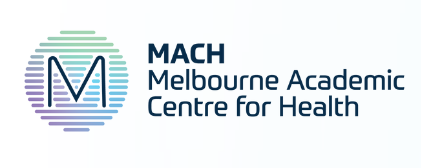
University of Melbourne and Melbourne Academic Centre for Health (MACH) are encouraging applications from fully qualified clinicians (including nurses and midwives) who are keen to bring Health Services Research (HSR) to bear on practical healthcare problems and take steps towards becoming a leader of innovative care.
The Future Leader Fellowship program will support a select cadre of established front-line clinical staff to address practical healthcare problems through HSR training and solutions. Without detriment to salary, each Fellow will be released from clinical duties for 0.2 FTE per week for 12 months, on a flexible basis, to upskill in HSR knowledge and work with (an) expert academic supervisor(s) to address a problem pertinent to their health service.
The program aims to bring clinicians with the best research-tractable ideas together with academic HSR experts to define the research needed to find an evidence-based solution to a practical healthcare problem. Deliverables at the end of the one-year fellowship could include an evidence-based solution to the identified problem, or more likely, a pilot study, collaborative application for research grant funding to address the problem, or a full-time problem-solving secondment such as those competitively offered by Safer Care Victoria. Fellows will continue to be paid in full by Western Health. On completion of the fellowship, the cohort will be supported by MACH to maintain regular interaction between themselves and the HSR experts with whom they have trained.
Formal part-time HSR training will be offered to the Fellows during the first six months of appointment in the form of registration for the University of Melbourne Master of Public Health (MPH) 6-month part-time elective in HSR. A scholarship will would provided to cover fees ($4,424 for those seeking assessment leading to 12.5 points towards the MPH; and $2,656 for unassessed work). The MPH elective in HSR will provide Fellows with formal training in HSR methods, coupled with time to begin refining the problem of interest for an HSR approach.
Eligibility
Eligible applicants must:
- Be a fully qualified Doctor, Nurse or Allied Health professional employed by a MACH-affiliated health service (vocational trainees are not eligible).
- Want to gain HSR expertise to share at the frontline.
- Have identified an important problem within their health service that could be addressed with a HSR solution.
- Show promise to become a leader in innovative care.
- Have written support from their manager to accompany their application (see below).
- Prior research experience is desirable.
Application procedure
Selection will be undertaken through an application and interview process led by the Director for MacHSR, Prof Harriet Hiscock. The highly competitive program will welcome up to 5 Fellows in the inaugural intake.
Pre-application enquiries may be sent to Lauren Wallis at University of Melbourne.
Applications should be sent by 9am Monday 21st March 2022 to lauren.wallis@unimelb.edu.au and must include:
- Full CV, including brief details of any research projects undertaken, the applicant’s role in the research, and how findings were disseminated (report for supervisors, abstract presentation at meeting, publication etc).
- A maximum two-page proposal outlining the practical problem of interest pertinent to the health service and how it might be addressed by HSR.
- A brief letter of support from the Health Service divisional/operational/professional manager responsible to senior management for the clinician’s unit confirming that the applicant is well placed to develop an interest in HSR, has the potential to become a future leader of innovative care, has in principle support for 0.2 FTE time-release from clinical duties if successful, and that the identified problem is important to address. An example letter template is available to view at www.machaustralia.org/MacHSR.
Interviews will be held in early May 2022 ahead of a mid July 2022 start.
Full details available at www.machaustralia.org/MacHSR
